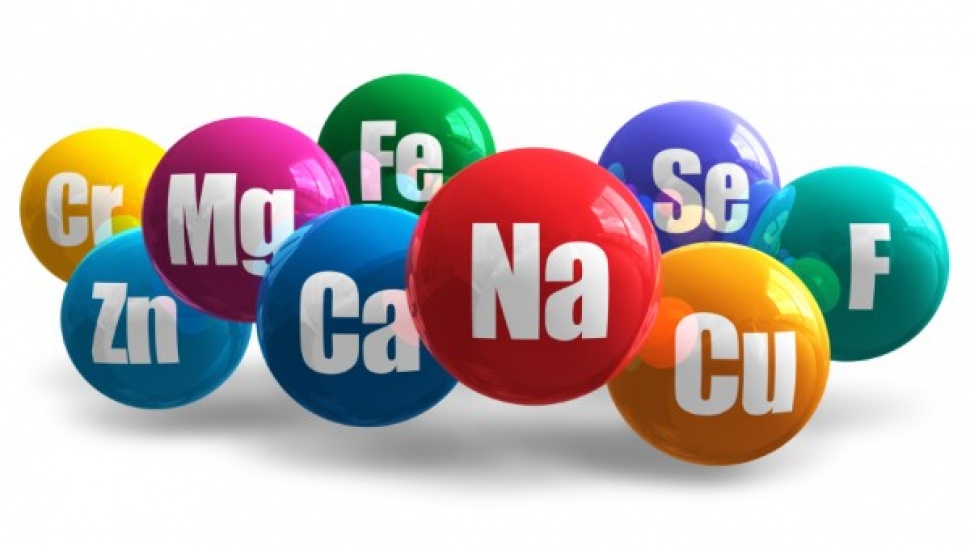Chemical elements in order of abundance in the human body include the seven major dietary elements calcium, phosphorus, potassium, sulfur, sodium, chlorine, and magnesium. Important "trace" or minor dietary elements, necessary for mammalian life, include iron, cobalt, copper, zinc, manganese, molybdenum, iodine, bromine, and selenium.
Why do we need minerals in our diet?
In one sentence: Our bodies can’t produce all of the nutrients that we need to function properly, so we have to eat them.
To understand why we need to eat minerals, it’s best to first understand what minerals are. Minerals are inorganic substances, which occur naturally in non-living things such as water, rocks and soil, as well as in plants and animals. Some minerals are for our cells to function properly, so they are actively taken into plants from the soil and water. We obtain minerals when they eat plants, as well as from water.
Minerals: Their Functions and Sources

What do dietary minerals do?
The minerals in our diet are essential for a variety of bodily functions. They are important for building strong bones and teeth, blood, skin, hair, nerve function, muscle and for metabolic processes such as those that turn the food we eat into energy. This means that minerals are needed for the body to work properly, for growth and development, and overall, for maintaining normal health.
Different minerals are required in different amounts but they are all essential. Minerals are grouped depending on how much they are needed on a daily basis so the minerals that are needed more in bigger amounts on a daily basis are known as the minerals, macro-minerals or major minerals. The minerals that are needed less and in smaller amounts are known as micro-minerals or “trace elements”.
Children, pregnant and breastfeeding mothers and older people may need to adjust their intake depending on the type of mineral. It is also important to note that excessively high intakes of minerals can be toxic (harmful).
No nutrient can single-handedly change the way our body or organs work. It is balance that brings it all together.




Share the News